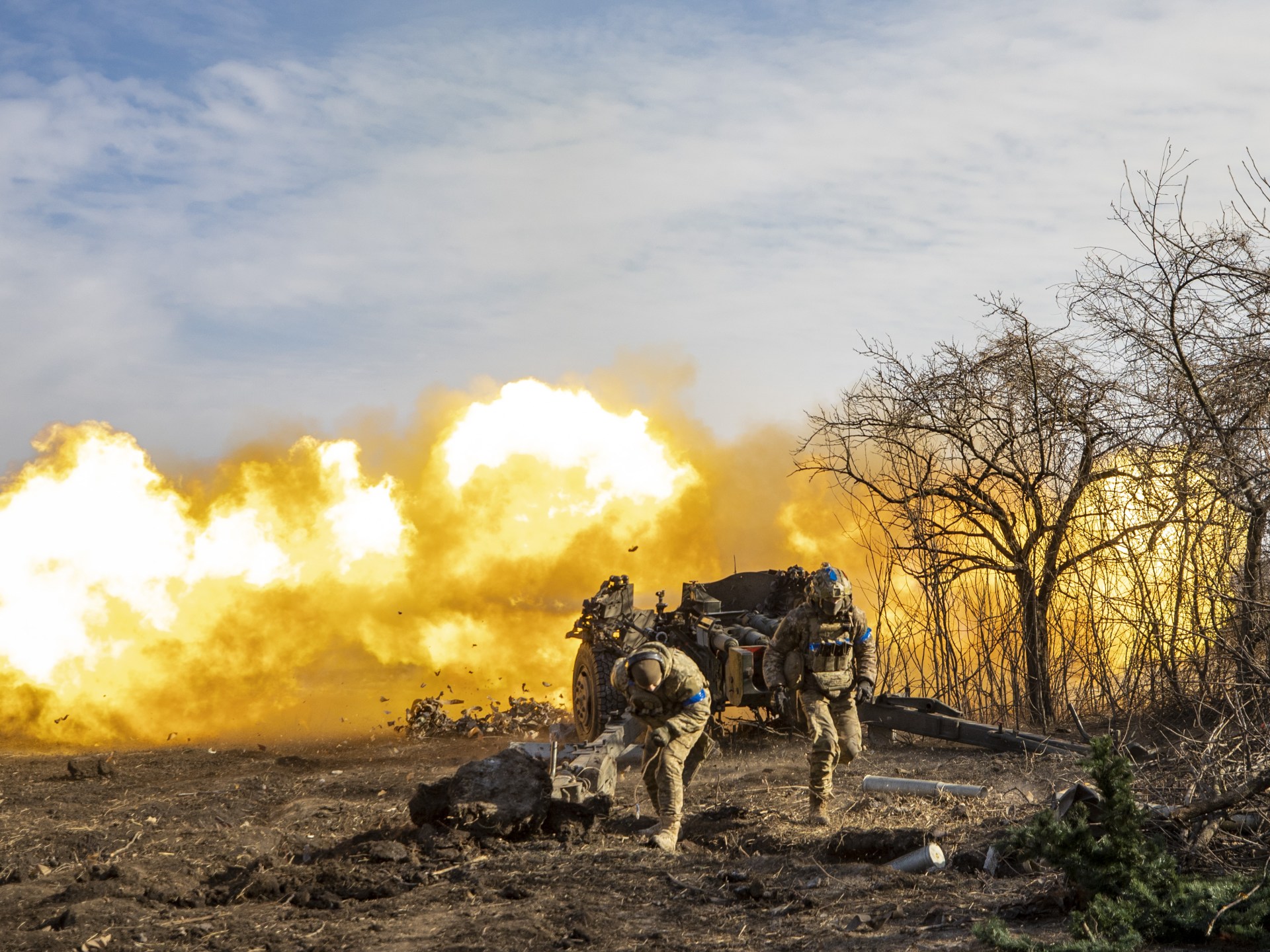New statements by the founder and leader of the Russian military Wagner Group, Yevgeny Prigozhin, sparked another crisis with the military administration in Moscow, while Kiev revealed changes in Russian tactics and that Moscow is preparing to implement new military plans.
Prigozhin said on Sunday that the Russian military police prevented the arrival of people who had recently joined his forces to the Wagner Military Center.
He explained that on the second of this month, the military police prevented the arrival of those who joined his forces and distributed them to different military units.
Wagner relies on volunteers and mercenaries in its combat strength, and many sources revealed during the past months that the group, which is accused of committing war crimes and violations in a number of countries such as Syria, Libya and Central Africa, recruited prisoners in Russian detention centers to fight in Ukraine.
With regard to the supply of ammunition to his forces, which he complained of a shortage a few days ago, Prigozhin said that most of those ammunition did not reach his group, either because of "bureaucracy or treason," as he put it.
A few days ago, Prigozhin accused the Russian Ministry of Defense of lying and misleading the Russian public about supplying him with ammunition, saying that his forces in Bakhmut do not get 80% of the ammunition they need in combat.
The Ministry of Defense denied these accusations and confirmed in a statement that "all statements allegedly made (on behalf of the assault units) regarding the lack of ammunition are completely untrue."
This was the first time that differences between the group and the Ministry of Defense were publicly disclosed, and some observers described what was happening as evidence of a competitive relationship that had begun to emerge between the two sides.
Russian tactical changes
For her part, the spokeswoman for the Ukrainian Southern Operations Command, Natalia Homenyuk, said that Russia continues to prepare for possible missile attacks, and to launch precise and specific strikes on Ukraine.
Hominyuk confirmed that Russia had changed its tactics and realized that large missile attacks did not produce the results it expected.
In turn, Ukrainian Air Force spokesman Yuriy Ignat told local media that Ukraine not only needs armored vehicles and ammunition to carry out a counterattack or succeed in ground operations, but also modern combat aircraft.
Ignat stressed the need to provide his country with air defense systems to counter Russian strikes, a demand Kiev has long repeated to its Western allies.
Earlier, the Russian "Anna News" agency quoted Ukrainian sources as saying that Russia began using "UPAB-1500B" bombs, which have great destructive and bunker-busting capabilities, for the first time since the outbreak of the war.
Russian media confirmed the use of bombs weighing 1,500 kilograms during the bombing of fortified Ukrainian positions by Russian planes in the city of Avdiivka, west of Donetsk, two days ago.
Guided glide bombs
In the context, a spokesman for the Ukrainian Air Force, Yuri Ignat, confirmed Russia's use of so-called new guided glide bombs, which weigh one and a half tons, in its bombing of Ukrainian regions.
He stressed the need to obtain modern fighters to protect against this type of modern bombs.
For its part, Ukrainian media published recent aerial photos showing what it says is great destruction in the Ukrainian city of Marinka, east of Donetsk Province, in the east of the country.
The Marinka region is located on the line of contact between the Ukrainian forces and the areas controlled by the Russian forces.
The Ukrainian army denied any mass withdrawal of its forces from the city of Bakhmut, in the Donetsk region, in eastern Ukraine.
The spokesman for the Eastern Group of Ukrainian Forces, Sergey Sherevaty, said that the Ukrainian army still controls the city of Bakhmut, adding that the fighting is mainly taking place on the outskirts of the city.
The battle over the industrial city of Bakhmut has been going on since the summer, and the city has become a symbol because it is at the heart of the fighting between the Russians and the Ukrainians.
There are only a few thousand left in the city of Bakhmut - which had a population of about 70,000 people before the war.
During the past days, Wagner announced that its fighters had taken control of several towns and neighborhoods in the vicinity and inside the city of Bakhmut and the chances of a siege on it, after months of battles, but the Ukrainian military leadership still declared that the city was under control despite its recognition of the difficult situation.
Shoigu continues his tour
Meanwhile, Russian Defense Minister Sergei Shoigu continues his tour of the Donetsk fronts and met a number of leaders of Russian combat units stationed in what Russia calls "the area of the special military operation in Ukraine."
The Russian Defense Ministry said that Shoigu listened to reports from commanders about the situation on the ground, and paid special attention to creating conditions for the safe deployment of soldiers, organizing comprehensive support for troops, and the work of medical units and rear support units.
In Kiev, the head of Ukrainian military intelligence, Kirill Budanov, suggested that Russia and Ukraine would face each other in a final and decisive battle next spring.

